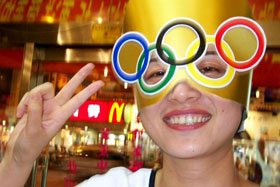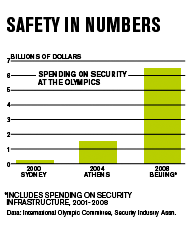 Following in the churned-up wake of Eric Moussambani, the loveable loser who grabbed the attention of the world in the 100m swim at Sydney in 2000, Democratic Republic of Congo swimmer Stany Kempompo Ngangola will competed as a wildcard entrant in the 50m freestyle heats.
Following in the churned-up wake of Eric Moussambani, the loveable loser who grabbed the attention of the world in the 100m swim at Sydney in 2000, Democratic Republic of Congo swimmer Stany Kempompo Ngangola will competed as a wildcard entrant in the 50m freestyle heats.
According to the official start list, his ranking time for his heat was an astonishingly slow 1min 15 secs.
In that time world record holder Eamon Sullivan could have finished his lap, climbed out of the pool, dried himself off and called Stephanie Rice to catch up on old times. American superstar Michael Phelps could have covered almost 150m of a 200m freestyle race and even the next lowest ranked swimmer in competition, Kareem Valentine of Antigua-Barbuda, could have completed a second lap.
SMH.





